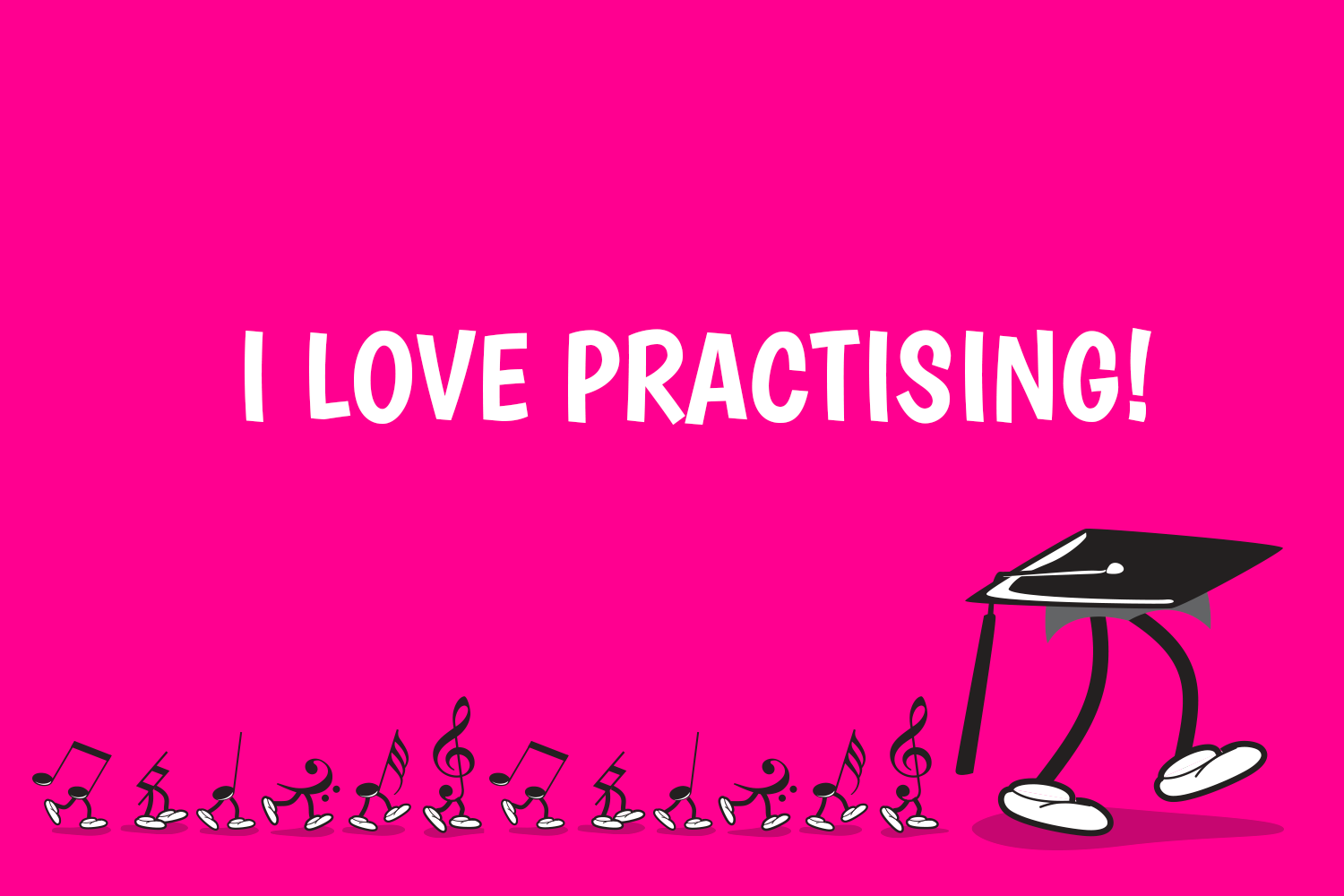I love practising!

This post originally appeared on our PreachWhatYouPractice site.
Original Published Date: 30 January 2014
(This is a special guest post by Mark Walton)
When I first started to play the clarinet I practised for three reasons.
- Reason 1 – I wanted to impress my teacher and make him happy.
- Reason 2 – I loved the sound of the clarinet and I couldn’t get enough of it.
- Reason 3– My best friend played the clarinet and I didn’t want him to be better than me.
During the Christmas holidays when I was fourteen I decided that since I was no good at anything else I would practise the clarinet for six hours a day. On Christmas Day I took it easy and only practised for four hours so the next day I did an extra couple of hours to make up for my laziness.
The first lesson back after my herculean holiday effort didn’t go as planned. Nothing I played to my teacher went well – in fact, it was a total disaster! I went home bitterly disappointed, frustrated and pretty close to tears.
From monumental disasters often great things can result. I reflected on what went wrong and quickly realised that all my hours of practice had been chaotically nonproductive and I had achieved nothing other than proving to myself that I was dedicated.
So from the ashes at the age of 14, I devised a practising system that I still use today and I think it is so brilliant I will explain it to you.
Step 1 – I make a list of all the things I need to practise. ie.
-
- All the major scales up to 3 flats and 3 sharps
- Study in Bb major
- Mozart Concerto third movement
- Arnold Fantasy for solo clarinet
Step 2 – I make up a practising schedule breaking up the time slots to 5 and 10 minutes in length and then fill in the gaps always starting with something I like. I find starting practising is always the hard part. Here is a schedule for an hour of practising. I never do the same hour twice because I get bored very easily.
| 5 mins | Mozart page 2 | 10 | Mozart last two pages |
| 10 | Study Bb line 2,4, 6 & 8 | 5 | Arnold Page 1 line 5- 9 |
| 5 | F Bb and Eb major | 5 | G D and A major |
| 5 | Arnold Page 2 line 1- 5 | 5 | Sight reading |
| 5 | Study Bb line 7,9, & 11 | 5 | Study all |
Step 3 – Set my timer and tick off the tasks as they are completed.
Step 4 – this is the good bit!
Over a cup of tea, I reflect on the success of the previous hour of my musical life. From these highly intelligent reflections, I then plan the next hour of my musical quest for clarinet perfection. Some things will have fallen into place whilst other things will be no better than at the start of the practice so this is when skilful creative strategy comes into planning the next hour’s practice.
So there you have it.
Why it works for me is that I have split my brain in two. I have a very good manager who knows just how much work to set and what is possible to achieve. When I don’t live up to these expectations the manager doesn’t get cranky with me but instead devises a more effective schedule for my next practice.
The other half of my brain is the cheerful worker who knows exactly what needs to be done and is prepared to do some tasks hundreds of times until everything is schmick.
What a team!! By themselves, they would achieve very little as I discovered when I was fourteen but together anything is possible.
You know if I had to choose between giving concerts, teaching students, recording, composing music, writing magazine articles, examining, travelling the world or practising I would always choose practising. Practising for me is all about creativity and problem solving .. in fact, I am going to go and practise now.
